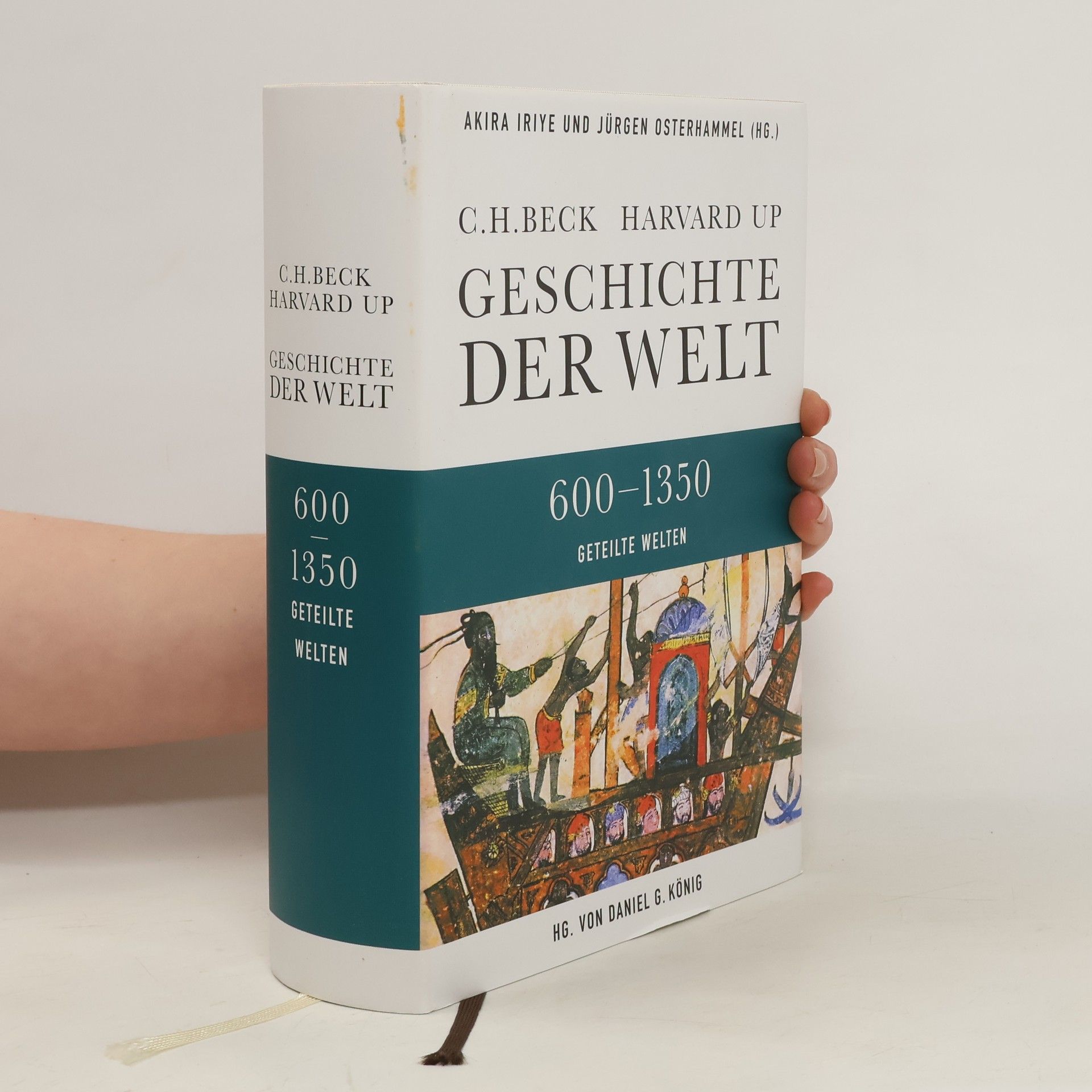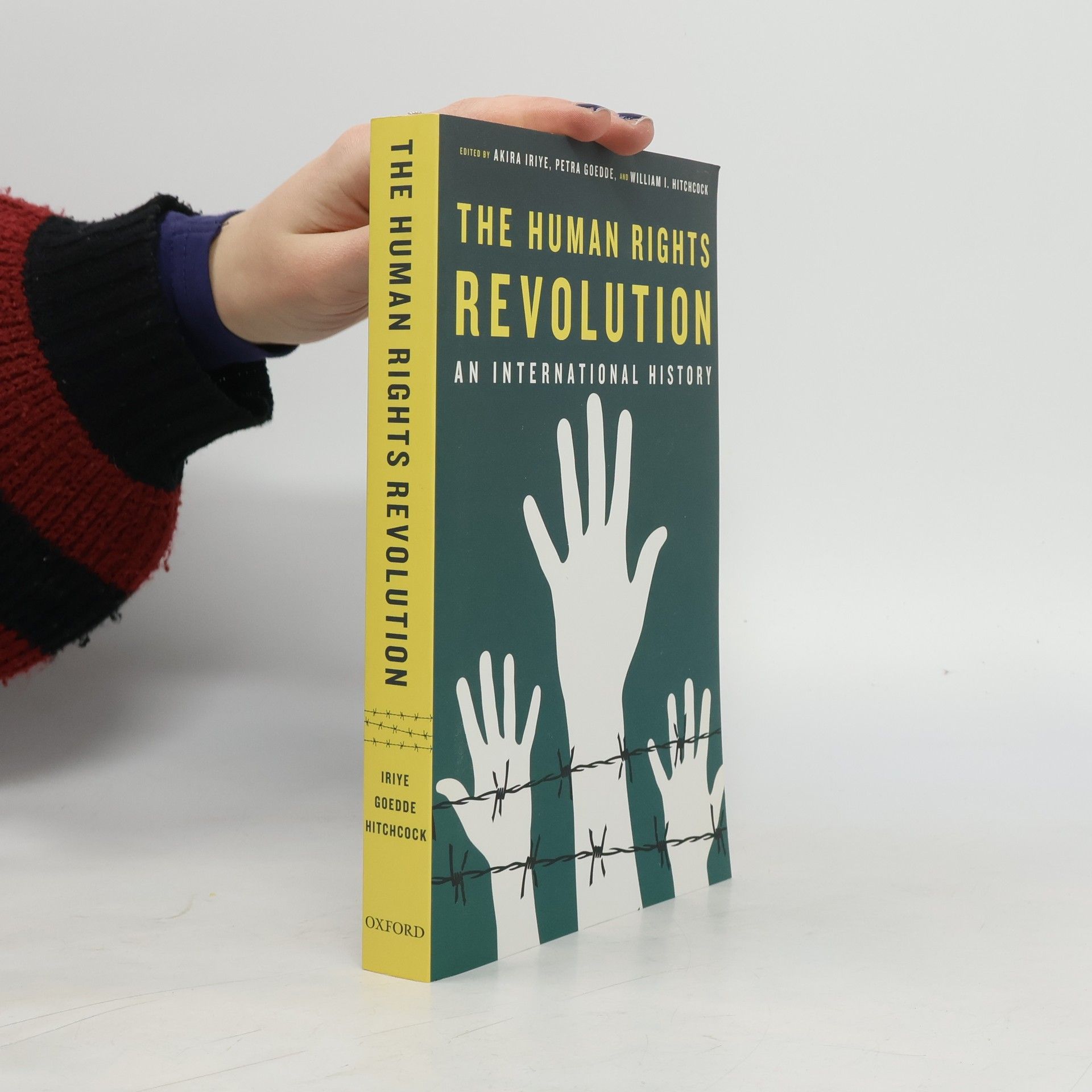The book explores the significant transformations that occurred globally after 1750, highlighting the interconnectedness of states and regions through commerce and conflict. It delves into the historical developments that shaped the modern world, focusing on events and changes outside the Western perspective. As part of a comprehensive six-volume series, it provides a detailed analysis of this pivotal era in world history, emphasizing the emergence of new dynamics that influenced global interactions.
Akira Irie Knihy
Akira Iriye byl přední historik americké diplomatické historie se zvláštním zaměřením na vztahy Spojených států s Východní Asií a mezinárodní problémy. Jeho práce se zabývala komplexními vazbami mezi národy a formováním globálního řádu. Iriye analyzoval historické trendy a klíčové momenty, které ovlivnily světovou politiku a mezinárodní vztahy. Jeho hluboké porozumění mezinárodním dějinám zanechalo trvalý odkaz v oblasti historického bádání.






Between the Second World War and the early 1970s, a human rights revolution emerged, driven by political leaders, activists, and citizens responding to the atrocities of the 1940s. This movement expanded to include claims from minorities, women, and marginalized communities worldwide, rooted in the fundamental belief that every individual, regardless of nationality, political views, or heritage, deserves dignity. From this core principle, a cascade of rights claims has significantly influenced world history. The contributors examine the surge of human rights legislation post-World War II, highlighting key milestones such as the UN Declaration of Human Rights, the Nuremberg trials, and the Geneva Conventions. They also explore the growth of human rights activism in the 1970s and beyond, including Amnesty International's anti-torture campaigns, human rights issues in Indonesia and East Timor, and the global fight against female genital mutilation. The volume concludes with reflections on the UN Declaration's 60th anniversary. By uniting esteemed scholars with emerging historians, these essays create a comprehensive agenda for the future study of human rights, emphasizing the ongoing significance of this transformative movement.
Professor Iriye analyses the origins of the 1941 conflict against the background of international relations in the preceding decade in order to answer the key question: Why did Japan, which had not been able to defeat the isolated and divided forces of China, decide to go to war against so... číst celé
Volume 3 describes the history of the foreign relations of the United States during 1913-1945, the period of two world wars as well as of momentous changes that brought to an end the period of European domination. The book is not a usual survey of foreign policy decisions but tells a story about... číst celé
International History
- 272 stránek
- 10 hodin čtení
Acknowledgements -- List of acronyms -- List of illustrations -- Introduction -- Part I. The rise of the modern (Dialectics of nationalism and internationalism ; Cross-cultural encounter ; Imagined communities ; Modern consciousness) -- Part II. Movement and empire (Movements ; Imperial cultures ; Racial formations ; Cultural internationalism) -- Part III. Global cultures (Visions of modernity ; Modernity in crisis ; Cold War cultures ; Challenging the Cold War consensus) -- Part IV. Transnational connections (Cultural globalization, 1970-1990 ; The growth of non-state actors ; The post-Cold War world ; The world today) -- Conclusion -- Further readings -- Notes -- Index.
Geschichte der Welt 600-1350 Geteilte Welten
- 1191 stránek
- 42 hodin čtení
Der letzte Band beleuchtet die Zeit zwischen 600 und 1350, als die Erde noch weite Räume bot, in denen Gesellschaften isoliert existieren konnten. Australien und Ozeanien waren kaum bekannt, und der amerikanische Doppelkontinent hatte nur geringe Verbindungen zu Europa, Afrika und Asien. Dennoch wuchs die Zahl der Menschen, die in Netzwerke eingebunden waren, die Objekte, Praktiken und Ideen über große Distanzen verbreiteten und die Entstehung sowie den Zerfall von Herrschaftsräumen beeinflussten. Diese Dynamik beendete die Isolation fremder Gesellschaften. Die Weltgeschichte wurde lange als Geschichte des Aufstiegs und Niedergangs weniger 'Hochkulturen' betrachtet, wobei Europa und der atlantische Westen in Macht, Wohlstand und kultureller Kreativität dominierten. Das neue sechsbändige Werk, herausgegeben von Historikern aus den USA und Deutschland, stellt diese Perspektive in Frage. Es anerkennt die Errungenschaften des Westens, setzt sie jedoch in den Kontext gleichzeitiger Entwicklungen weltweit. Erstmals werden die Ergebnisse jahrhundertelanger internationaler Forschung zur Vorgeschichte der Globalisierung und zur Entwicklung von Gesellschaften und politischen Ordnungen zusammengefasst. Der Fokus liegt auf bisher vernachlässigten Wechselwirkungen, wie Migration, interkontinentaler Ausbreitung von Technologien und Ideen sowie globalen Handelsströmen und Konsummustern.
Wege zur modernen Welt
- 1002 stránek
- 36 hodin čtení
Zwischen 1750 und 1870 wurde aus einer Welt, die – bei aller Vernetzung – im Großen und Ganzen noch regional strukturiert war, eine immer enger zusammenhängende Einheit. Seitdem sind die unterschiedlichen Teile des Globus nicht nur über Kriege und Handel miteinander verbunden; auch kulturelle Entwicklungen, politische Reformen und soziale Veränderungen waren immer häufiger aufeinander bezogen. Mit dem Band „Wege zur modernen Welt“ liegt nun der vierte Band der großen, auf insgesamt sechs Bände angelegten Geschichte der Welt vor. Wie bildete sich die moderne Weltwirtschaft heraus, und warum begann die Industrialisierung nicht in China, sondern in England? Welche Rolle spielten Sklaven und Nomaden in der zusammenwachsenden Welt? Wie wurde aus dem Hinduismus eine moderne „Religion“, worin lagen die Ursachen für die Revolution der Zeitvorstellungen im 19. Jahrhundert, und inwiefern war die Entstehung der „muslimischen Welt“ eine Reaktion auf globale Integration? Fragen wie diese werden in vier thematisch organisierten Kapiteln ausführlich behandelt. Das Ergebnis ist eine dezidiert globalgeschichtliche Sicht auf die Welt des 19. Jahrhunderts, die bisher gängige Narrative infrage stellt.
Il mondo globalizzato
- 954 stránek
- 34 hodin čtení